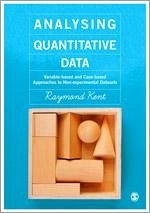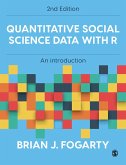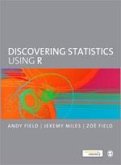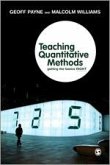This innovative book provides a fresh take on quantitative data analysis within the social sciences. It presents variable-based and case-based approaches side-by-side encouraging you to learn a range of approaches and to understand which is the most appropriate for your research.
Using two multidisciplinary non-experimental datasets throughout, the book demonstrates that data analysis is really an active dialogue between ideas and evidence. Each dataset is returned to throughout the chapters enabling you to see the role of the researcher in action; it also showcases the difference between each approach and the significance of researchers decisions that must be made as you move through your analysis.
The book is divided into four clear sections:
Data and their presentation Variable-based analyses Case-based analyses Comparing and combining approaches
Clear, original and written for students this book should be compulsory reading for anyone looking to conduct non-experimental quantitative data analysis.
Using two multidisciplinary non-experimental datasets throughout, the book demonstrates that data analysis is really an active dialogue between ideas and evidence. Each dataset is returned to throughout the chapters enabling you to see the role of the researcher in action; it also showcases the difference between each approach and the significance of researchers decisions that must be made as you move through your analysis.
The book is divided into four clear sections:
Data and their presentation Variable-based analyses Case-based analyses Comparing and combining approaches
Clear, original and written for students this book should be compulsory reading for anyone looking to conduct non-experimental quantitative data analysis.








